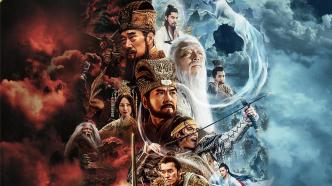
"Feng Shen No. 1" is a film full of sincerity. Regardless of whether the audience feels that the story and visual effects meet expectations, at least the effort and thought of the creators can be seen from a large number of production details. For Chinese films, its release has actually become the ceiling for the production of magical and mythical themes in China today.
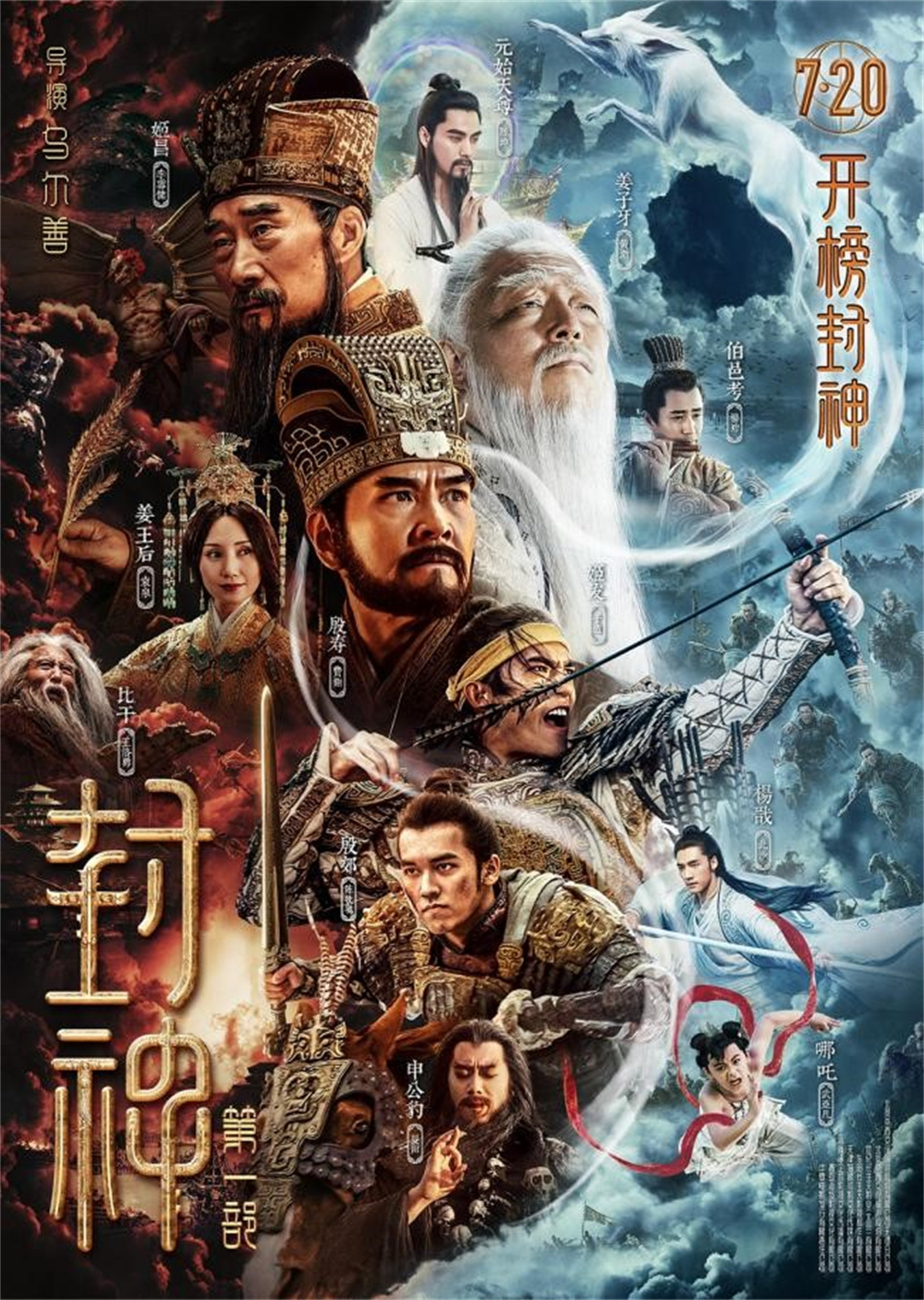
"Fengshen Part I" poster
The "Fengshen" series is the most ambitious work of director Wu Ershan in his film career. From the first low-cost costume comedy action film "Jiang Shou" (2010), to "Painted Skin 2" (2012) and "Looking for the Dragon" (2015), in just five or six years, he completed the triple jump of director advancement. "Looking for the Dragon", as the most acclaimed film work of "Tomb Raiders", represented the highest commercial standards of Chinese films at that time, whether it was the cast or the scale of production. These successes are also due to his accumulation of more than ten years of industry experience as one of the best commercial directors in China before he joined the film industry.
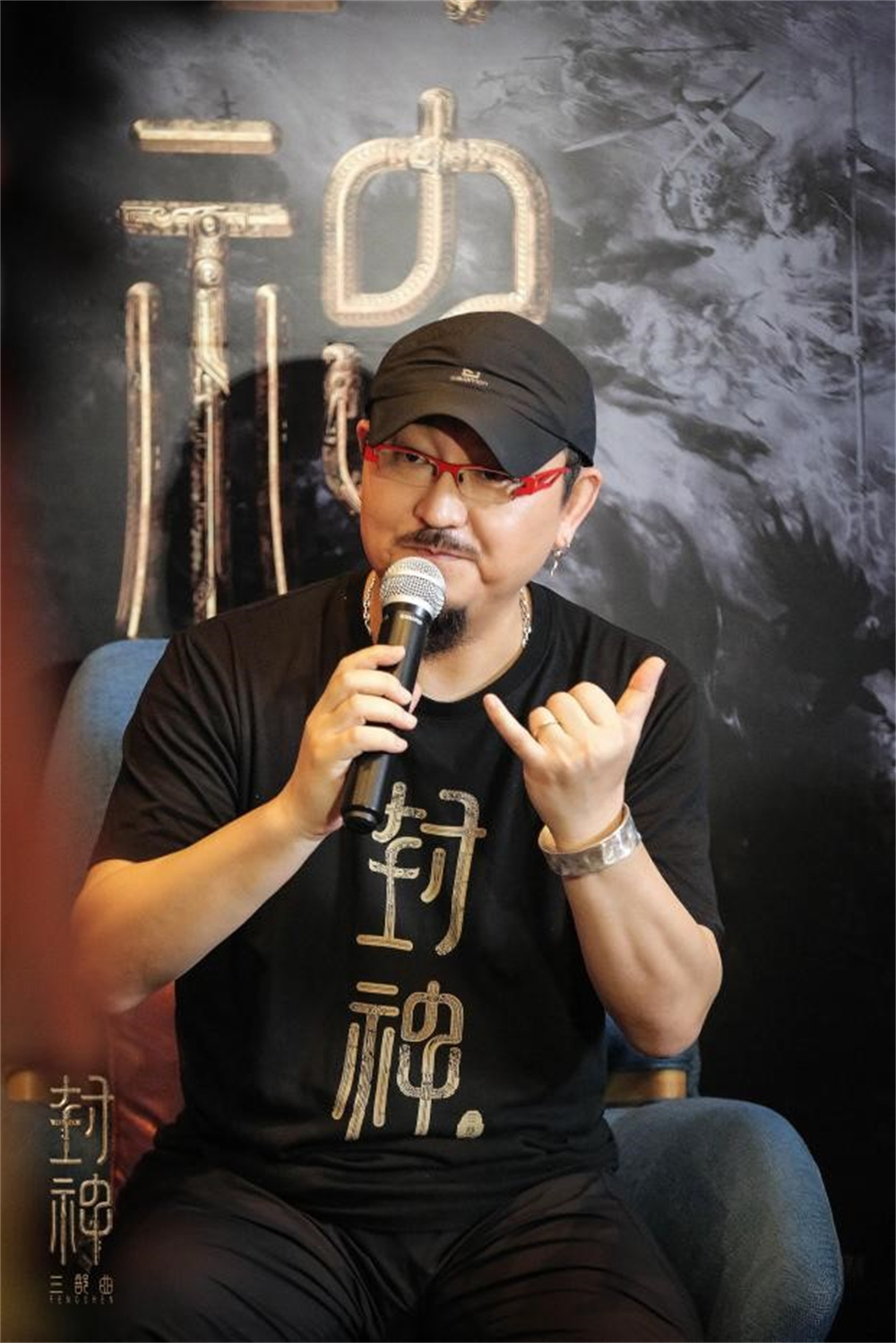
Director Wu Ershan has not many films, but he is already a leading figure in contemporary Chinese films.
Since the decision to shoot "Feng Shen", the difficulty of this project is far beyond that of ordinary movies. It has been seven or eight years since the planning began and the first film was released. Not only was the main investment company Beijing Culture's poor performance and restructuring, but also the slow progress caused by the three-year epidemic, and the construction period was delayed again and again. The huge investment scale of the trilogy, as well as the expectation that the total box office must be close to 10 billion to be profitable, make people wonder whether this project will eventually be difficult.
It also contains the imagination and speculation of many people who eat melons about "money laundering in the film and television industry". In the past, such as the untimely death of the TV series "Three-Body Problem" directed by Zhang Fanfan, and the fact that "Mermaid Empire" and other large-scale investment films could not be produced and delivered at all, it proves that sometimes plans to build skyscrapers exceeding records, but once the preparation is insufficient and the capital chain is broken due to market changes, there are often only half unfinished buildings left in the end. For the production of film and television dramas, the huge capital investment and the difficulty of overall progress are like building a building, which is a project that is on thin ice. Once there are major problems that cannot be solved, it will turn into a disaster that dies halfway.
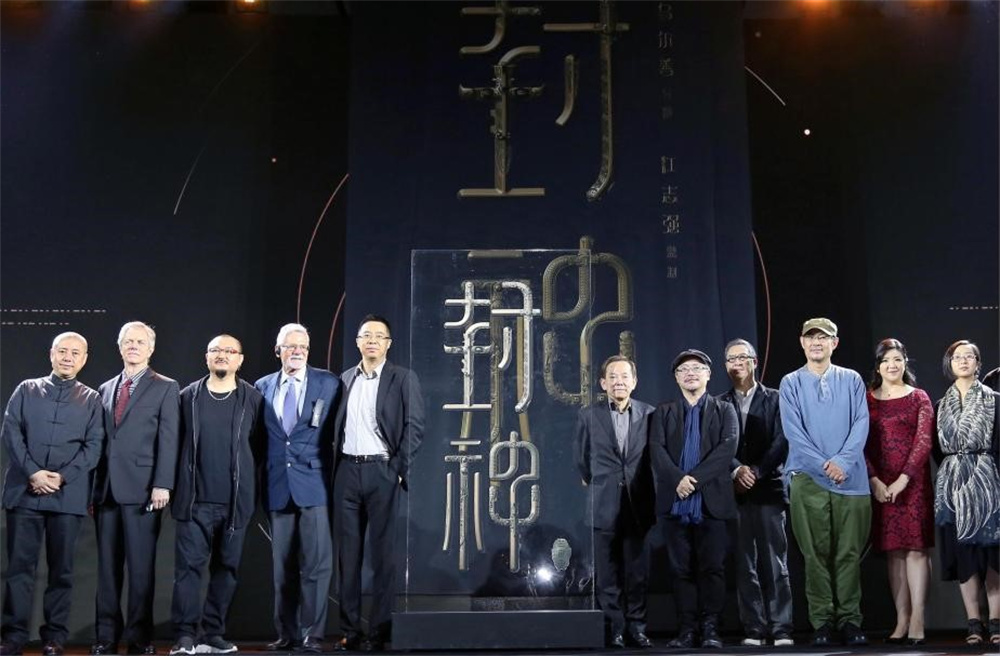
For a film like "Feng Shen", the core creators are unknown to the general audience, but they are all gods. The films they participated in in the past are all masterpieces. Because of the difficulty of this kind of project, ordinary people in the industry cannot do it. When the producers stand on stage, it is also a "Gods List".
Fortunately, "Feng Shen No. 1" was released, and it wasn't even like other films that had been dragged on for too long. In the end, it could only reluctantly squeeze the mud into four different shapes and show it to the audience. In fact, the production of "Fengshen Part I" is quite high, and it is a work that far exceeds the industrial standard. It is conceivable that it contains a lot of director Wu Ershan's persistence, persistence and high standard requirements for image quality.
It took seven or eight years for the "Fengshen" series to achieve the original goal of industrial production. However, whether it can return capital or make a profit can only be judged by the market. It's a pity here that it took a long time, and the film market environment is different from the early years. During this period, "The Wandering Earth 2" has become the benchmark of the Chinese film industry, and "Avatar 2", which James Cameron spent more than ten years producing, has also been released, but its reputation is far worse than the first one. This probably implies that even a commercial movie with a great novel must be completed within a certain period of time, otherwise it will not be able to keep up with the changes in the movie market.
As the "Fengshen Trilogy" is the target of the "Lord of the Rings Trilogy", it took about 7 years to make it, which has become a peak in film history. But that was 20 years ago. Subsequent "Lord of the Rings" spin-off films and American dramas have seen a decline in word-of-mouth, coupled with the rise of a large number of Marvel commercial films, all of which show that today's young audiences prefer "portraits of supernatural heroes" portrayed in a realistic setting compared to pure "magical themes". Is the story of "magic theme" and the somewhat slow and thick "history-telling" story-telling way outdated? This is a question that only the market can answer.

A group portrait of the cast of "Fengshen Part I".
Although "Feng Shen No. 1" cannot escape its commercial profit prospects and industrial innovation, the content of the film is still the greatest value of the film. What is the storyline of the film?
From the Yuan Dynasty's "Wu Wang's Fighting Zhou Ping Hua" to the Ming Dynasty's "Feng Shen Yan Yi" novel, the ancients rewrote the real history of the Zhou Dynasty's destruction of the Shang Dynasty from 1055 to 1046 BC, incorporating a large number of mythological figures and folk ghosts, and reorganized it into an imagination of ancient history. Although the Chinese civilization has been "five thousand years", the earliest writing that can be found now is the oracle bone inscriptions of the Shang Dynasty. From the perspective of historical research, the Shang Dynasty in the "Xia, Shang and Zhou" can be regarded as the well-documented source of Chinese civilization. "Fengshen Yanyi" is a fictional novel, but some important plots are based on historical events, and the descriptions of plots such as "Fox Demon Daji", "Jiuchi Meat Forest", "Pao Lao Dig Heart" and so on have long been known by the majority of Chinese.
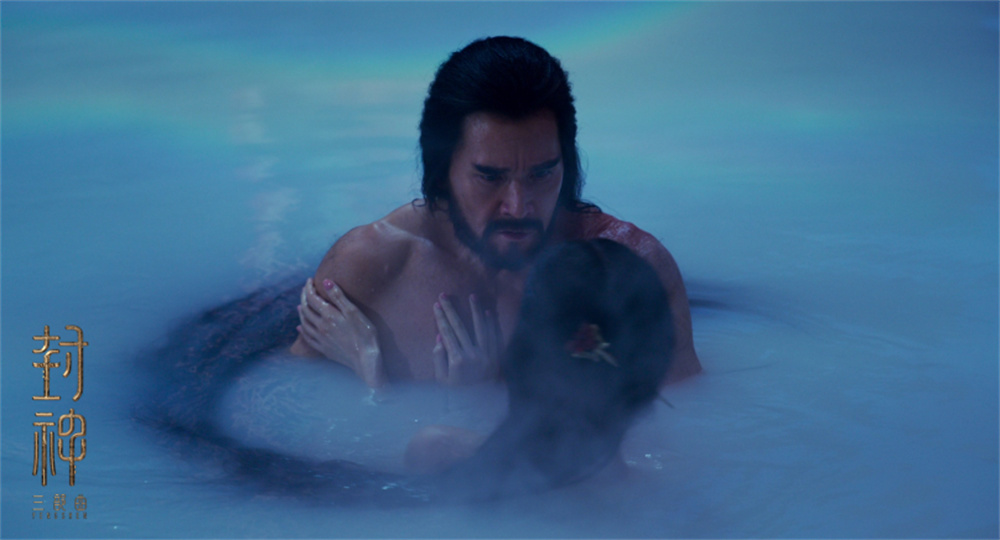
The so-called "wine pool and meat forest" and "lewdness and immorality" in the emperor's house have always been topics of most interest to ordinary people. This part of the film is handled very well, with a bit of a horror and thriller atmosphere, and the gore and lust are handled with great taste.
In other words, although the movie "Fengshen" is a magical movie, its story adaptation must conform to a certain trend of legend. Just like the story of Tang Minghuang and Yang Guifei, no matter how you change it, the basic relationship between the characters cannot be greatly changed. On this basis, the film retains many allusions familiar to the audience, but in shaping the motivations of the characters and the environment, it recreates a story logic that conforms to historical evolution, and it also allows modern audiences to understand the emotions and choices of various characters.
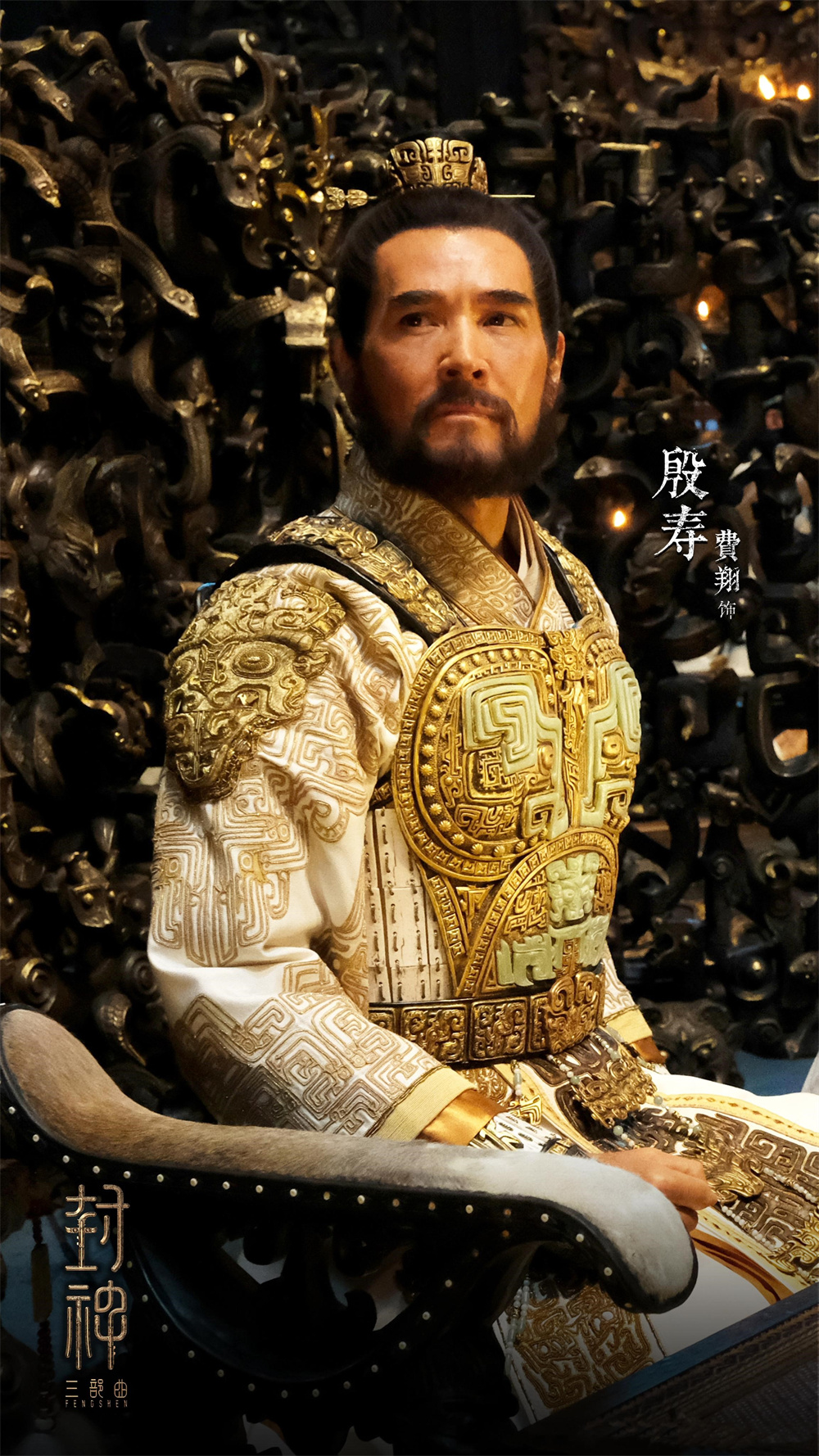
Mr. Fei Xiang played the role of Shang Zhou King Yin Shou, with a very noble appearance with a touch of mixed blood. But as a Chinese-American, his Mandarin lines always make people a little anxious.
"Fengshen" has generally become a "historical movie" of fictional history. The plot trend is generally in line with the story of the change of dynasties in China: a stupid and tyrant, because of his inability to govern the country, greedy for pleasure, made the people miserable, and many princes with more wisdom and courage joined forces to resist the tyranny and finally overthrew the new dynasty established by the stupid king.

Ji Fa, played by the young actor Yu Shi, is the first protagonist from the perspective of the story line. But because there are many supporting roles to be arranged, his part in the role does not appear particularly prominent.
The plot of "Fengshen Part I" unfolds until Ji Fa and his father Ji Chang escaped from the rule of King Zhou, and finally returned to his hometown Xiqi, and began to accumulate strength for the next large-scale resistance. Among them, "going home" has become the most important motivation and emotional clue of the main characters, and the complete growth and changes of the young Ji Fa also make him the most critical core protagonist of the film.
On the other hand, it is how King Zhou, with the help of Daji, became a tyranny that must be overthrown. Compared with the traditional concept of "beautiful women and troubles", the film emphasizes that King Zhou, who was originally a hero, eventually became the villain in the story because of the struggle and abuse of power. To a certain extent, the deliberate demonization of women is eliminated.
The third clue is that the demigod Jiang Ziya and his two assistants, Yang Jian and Nezha, intervene in the political struggle of the imperial court on behalf of the heaven that wants to save the mortals, and get to know the demon Dao Shen Gongbao for the first time.
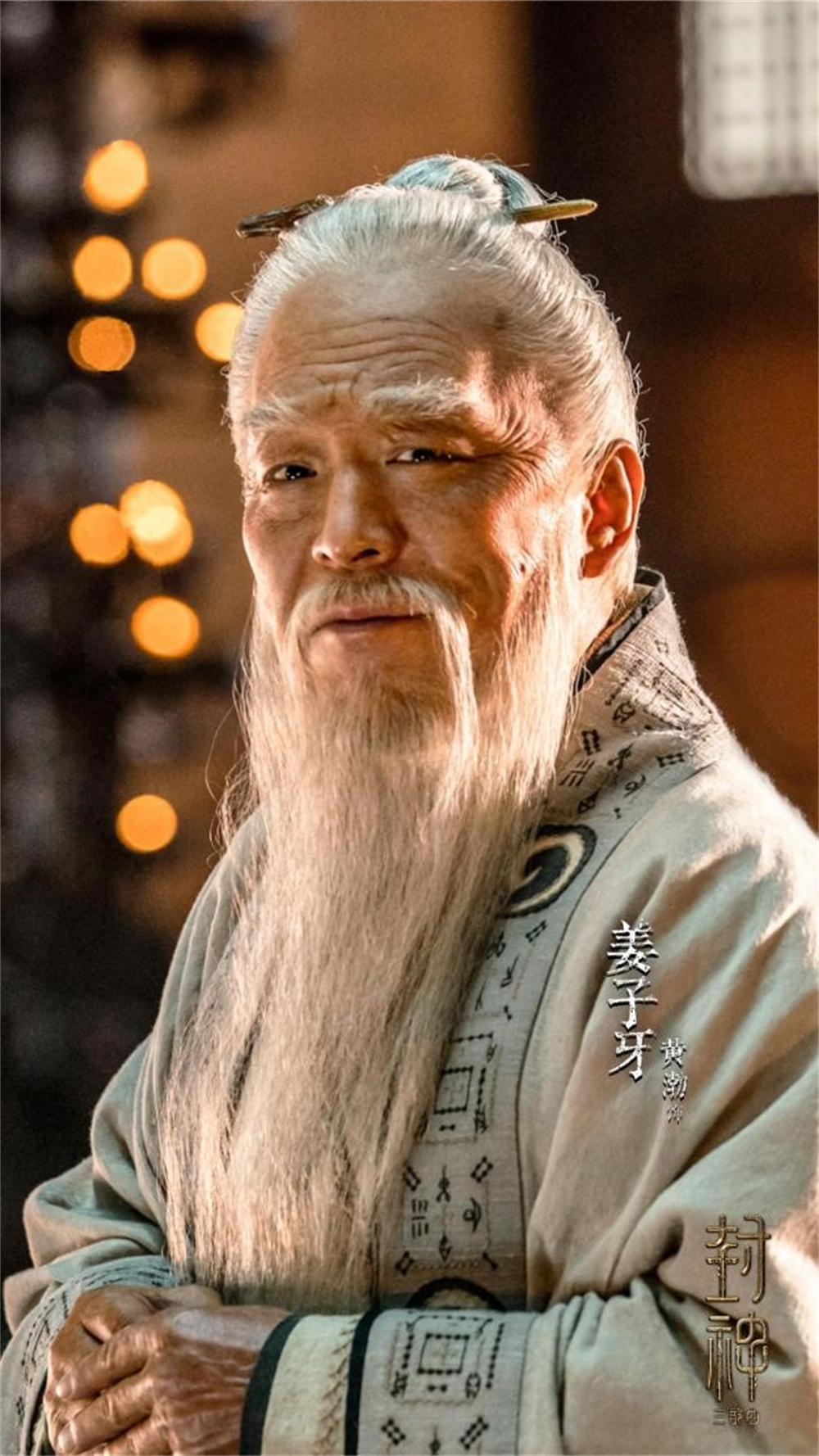
Jiang Ziya and Shen Gongbao, the two protagonists who fight with gods. There are some comedic features in this film. This is a very interesting adaptation perspective. In this way, it can be distinguished from the "human protagonist".
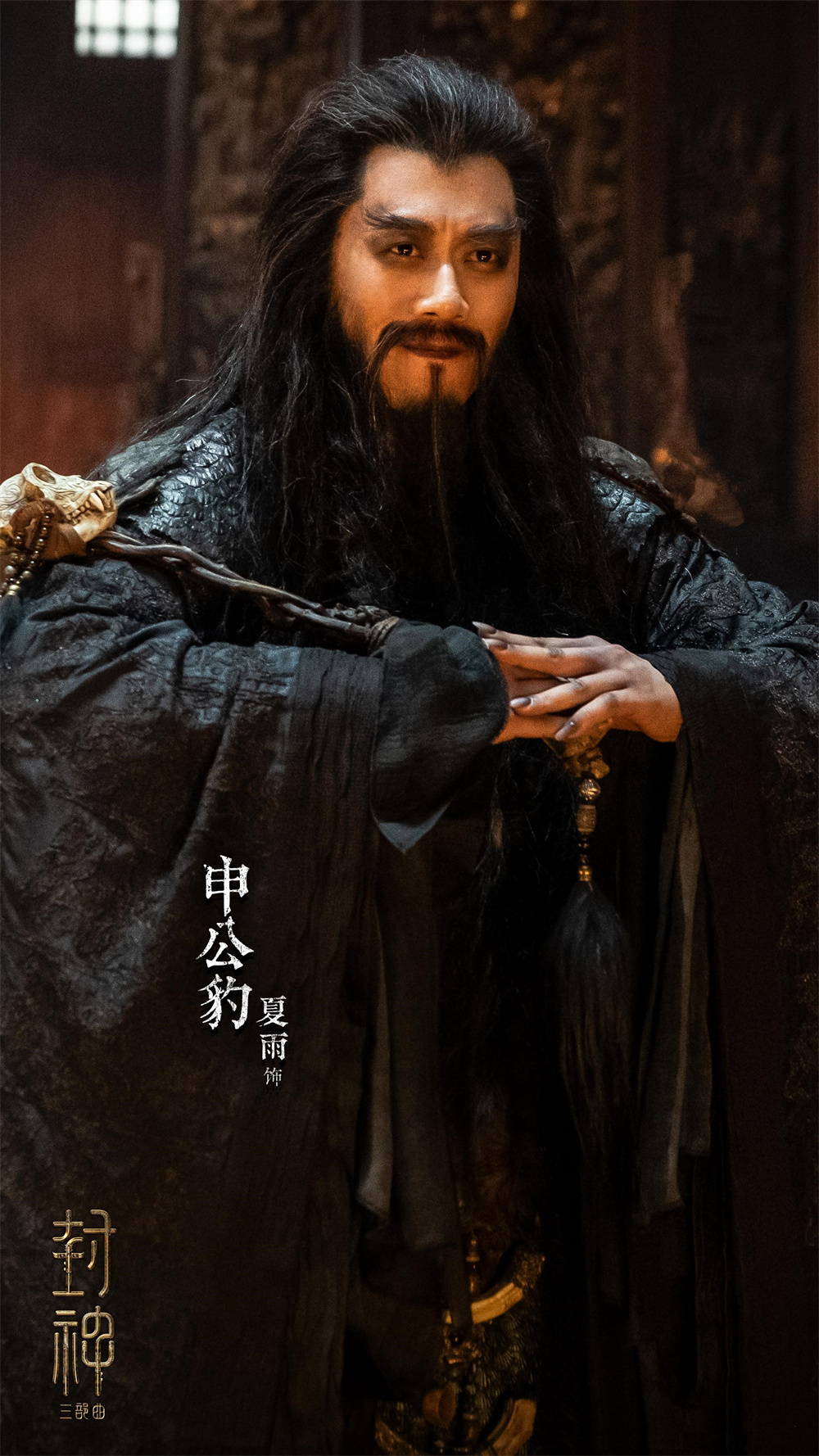
Shen Gongbao, the most distinctive character in the whole film, is a cute evil hero.
As a mythology with many characters, the story adaptation of this film is quite clear. It can extract the main line of contradictions from the complicated characters and clues, and depicts a line of confrontation between good and evil for "the world is looking for a wise king". Several key characters, such as the familiar Jiang Ziya or the eye-catching Daji, appear as supporting roles with distinctive personalities in the story. Although their personalities and images are outstanding, they are not too sharp, and they are basically stable.
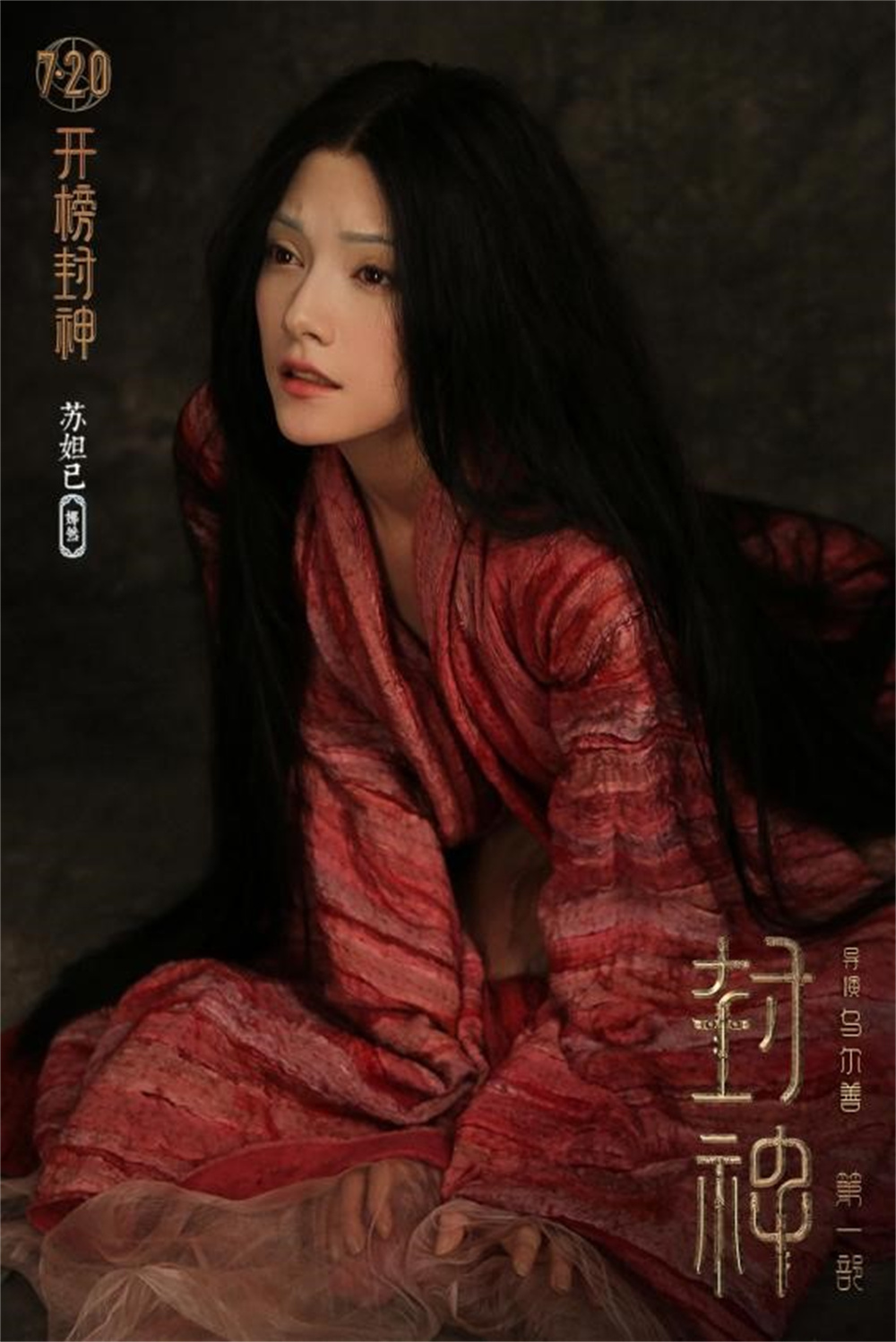
When filming "Fengshen", who will play Daji is always one of the topics that everyone cares about the most. In this film is the Russian actor Naran. Overall pretty amazing. In the film, her body dynamics are much more beautiful than the static pictures, which is quite in line with the positioning of the fox demon, and she is a very beautiful image in the whole film.
The main screenwriter, Ran Ping, used to be the screenwriter of the TV series "Wu Zetian" (1995) and "Water Margin" (1998). He also cooperated with Wu Ershan in "Painted Skin 2". Sometimes cruel, sometimes funny, combining a lot of court intrigues and folk Taoist culture, from the perspective of commercial films, it is a very sophisticated story, not a random Hong Kong entertainment film style.
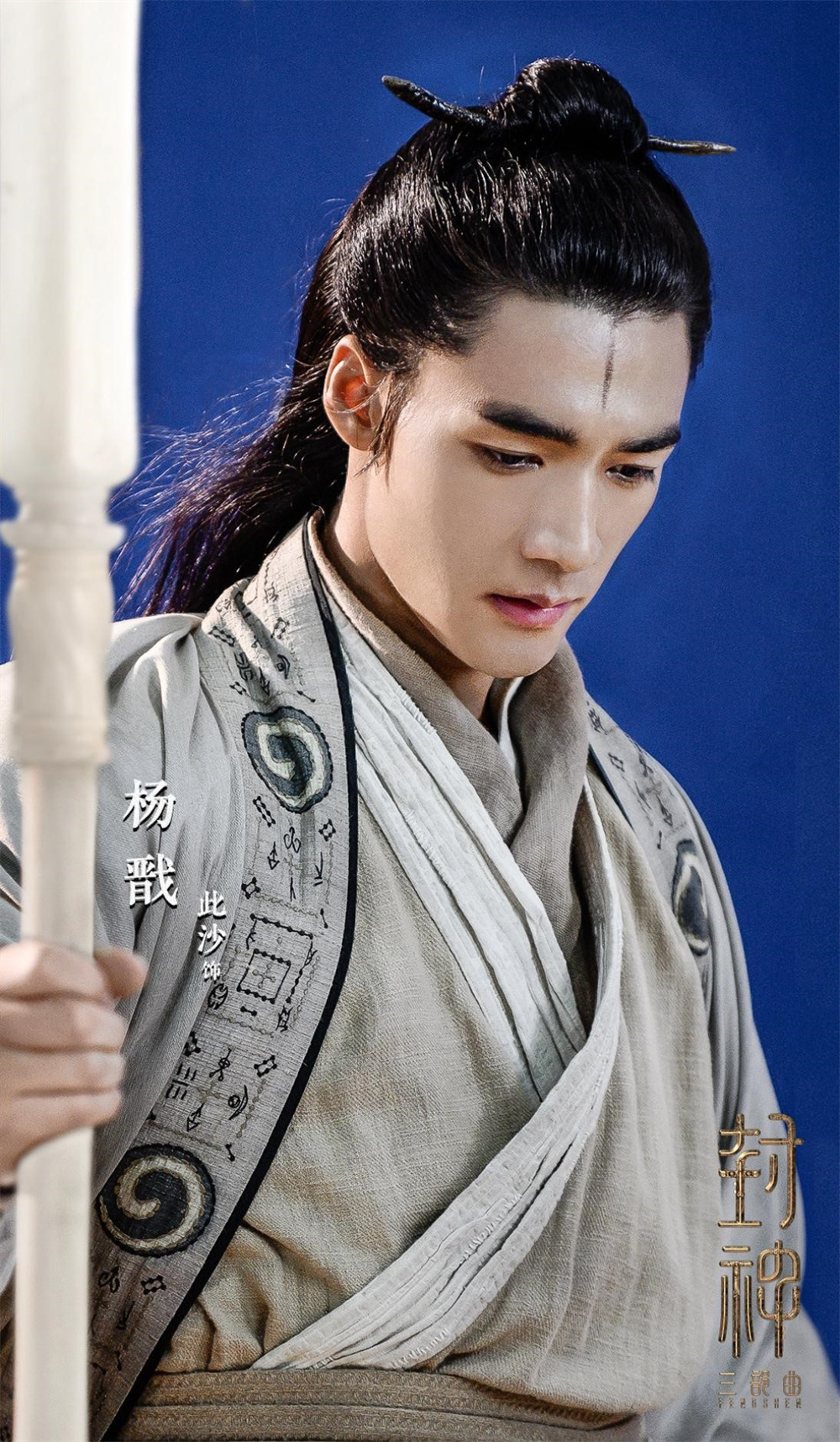
There are a lot of Taoist features in the setting of immortals and artistic modeling. At the same time, the appearance and aesthetics of the actors are also very good, in line with the classical image.
In addition to the story, another major feature of this film is the art modeling and CG visual effects. And this has always been the strong point of director Wu Ershan.
In fact, a big problem with fantasy films is how to create "I have never seen a magical scene"? However, there are many historical projections in "Fengshen", so the art style naturally needs to be more thoughtful, combined with the historical and cultural styles at that time, and can't be messed up without any basis. In fact, in the trailers and promotional graphics, the audience was full of doubts about the art style, but these doubts basically disappeared in the finished film. Except for the overall design of the Tianting section, the colors are a bit brighter and more "cartoon". Other scenes involving palaces and temples, field battlefields, and mountains and forests have a solid and heavy art style.

The artistic modeling of Tianting is a slightly controversial part of the whole film. But other than that, the art style is solid, thick, simple, and gorgeous.
From the first narration of the whole film to tell the background of the story, the picture is matched with the illustrations of imitation bronze patterns made by CG, which reflects the exquisiteness of the film. Later, the fine arts ranged from the architectural design of city buildings to the small shapes of clothing accessories and wine glasses and weapons, most of which were not abrupt. Although it is a bit far from the background of the Shang and Zhou dynasties, most of them conform to a Chinese classical and rough style, without the "Japanese design" that is often criticized in other films. Especially in terms of vision, different from the farming civilization that represented the Zhou Dynasty, the living environment of King Shang Zhou can see the presence of wild animals from time to time. Including the tributes for worshiping ancestors in temples, raw meat is used directly in the flashing scenes. It is conceivable that the production staff has done detailed research on this period of history, trying to stay as close as possible to the environment of the time at that time.
In terms of combat design, from the "horse in fire" at the beginning of the film to the chasing and fleeing of the "stone lion" at the end, they are all very gorgeous visual designs. Judging from magic movies, they are generally quite imaginative.

Gorgeous fire horse, impressive.
The success of the story and overall visual effects basically guarantees that the lower limit of the film has reached a very high standard. But whether it is "good-looking" or "wonderful", different audiences may have different opinions.
On the whole, because of the feature of the film's "historical story", the plot develops smoothly most of the time, and various clues are slowly laid out, which is not particularly "thrilling" or "twisting aftertaste". The impressive passages in the whole film are probably the heroic might and fierce fighting of King Zhou in the opening scene of quelling chaos, Su Daji's overall charming and mysterious and dangerous temperament shaping, and Shen Gongbao and Jiang Ziya's comedic performances from time to time. Even Shen Gongbao, because of his overall appearance and erratic movements, couldn't tell it was played by Xia Yu if he didn't look carefully. The famous actor almost completely concealed his "shape", which can be said to be the most successful character creation. The overall handsome appearance and youthful vigor of many young actors who play the proton troupe all reflect director Wu Ershan's art skills in shaping "human body beauty". These are all obvious places to impress.

The physical beauty of the young actors embodies a masculine and majestic atmosphere, which not only conforms to the overall historical image of Shang and Zhou, but is also a rare upright spirit in today's film and television circles, and they all reflect the aesthetic standards of director Wu Ershan.
There are also many flaws in the fly in the ointment. For example, the portrayal of the main character Ji Fa is not particularly successful. A few paragraphs of narration were added after the opening part of the film, but it still feels a bit superfluous, and it does not solve the overall weakness of the character image. This has to mention the image of the old father Ji Chang. Although there may not be too many scenes, the actor Li Xuejian even has a vague accent, but it has always made people feel very worried. The image of Daxian, who is worried about the world and heavy, can stand on the screen in a second. In the final analysis, it depends on the word "acting".
In contrast, Teacher Fei Xiang, who played the role of King Yinshou of the Shang Dynasty, is over 60 years old, and his body is not bad, but his Chinese-American accent makes people feel anxious for him. The young actor who also plays his son Yin Jiao has as gorgeous muscles as his father, and has many roles, but his performance is not particularly outstanding.
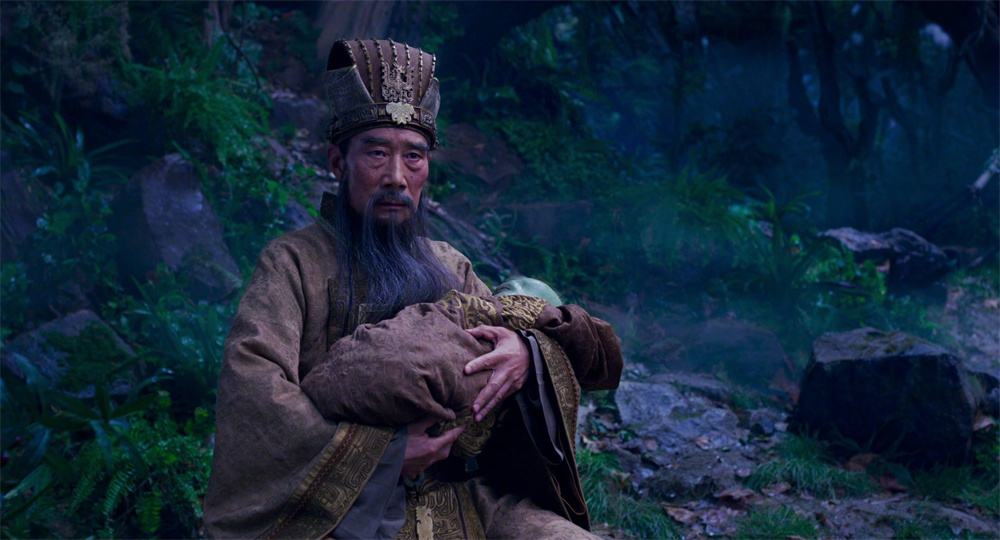
The Zhou Wen Wang Jichang played by Mr. Li Xuejian is the one who deduced the gossip of the Book of Changes in the legend. He is particularly outstanding, not because of the many scenes, but because of his good acting skills.
There are many characters in "Fengshen Part I", although we can see their distinctive characteristics, but it is difficult to say that everyone is particularly beautiful in every scene. Except for the scene where King Zhou ordered the proton group teenagers to kill their father, although most of the scenes have obvious conflicts and contradictions, they don't have a particularly sharp feeling, which seems to be "lack of drama". Compared with an experienced director like Zhang Yimou, who can fully explore and refine the "drama flavor" in every scene, director Wu Ershan has extremely strict requirements for the screen, but the refinement of the play seems weaker. The good-looking parts are similar to the previous "Painted Skin 2" and "Looking for the Dragon". The occasional gags and the overall atmosphere of either glamorous or weird are well created, but most of the "plays" are still a little flat.
In fact, "drama" should be the core of "drama". Many aspects of "Fengshen Part I" are very well done. You can say that it is a "model of art" and "a visual feast", but it is difficult to be praised as "a teaching material for performance" or a "good show", although it can be regarded as a "good movie" in general.
In the final analysis, "Feng Shen No. 1" is not a movie that highlights the "dramatic plot", or impresses the audience with suspense and touching emotions. For most commercial entertainment films, it is not a particularly easy task to be a "good show". Even for Hollywood blockbusters, there are very few films that can be "not boring as a whole". Looking at "Fengshen Part I" by this standard, you will feel that it is worse than "The Wandering Earth 2".
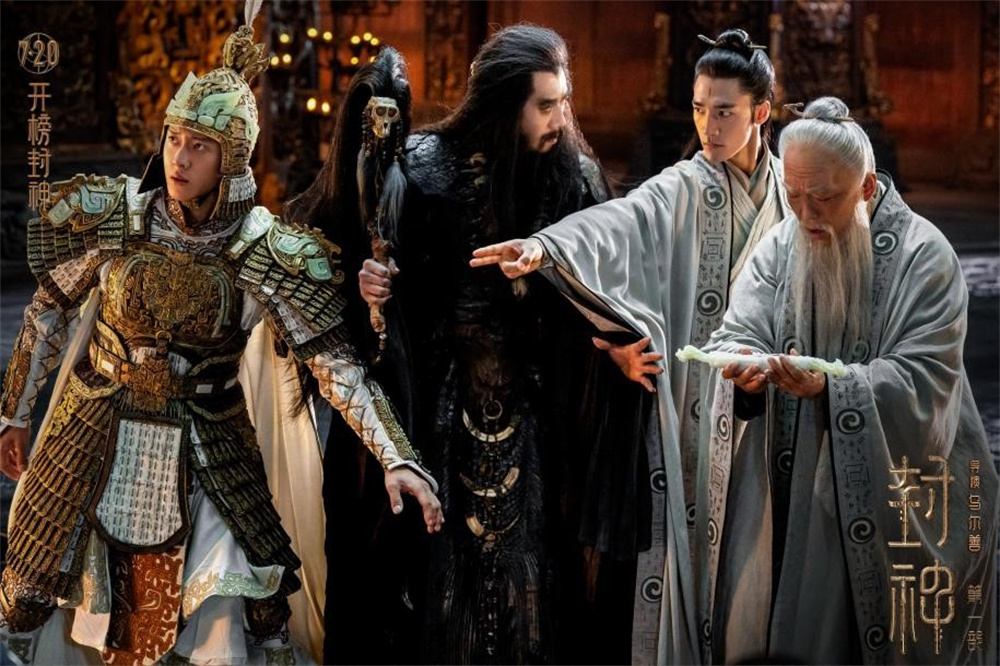
What is a "play"? Everyone has a different understanding. But some situations have "drama" at first glance, while others appear weaker. This is an inherent problem of the film.
Avoid embarrassment, every audience will have their own different evaluations. Just like whether the exterior design of a skyscraper is good-looking or not, everyone who walks by can point and have their own opinions, but at least the building is tall enough, the shape is complete, and it has already been erected there; and whether it has made a lot of money in business, or has been losing money in operation and use, a tall building is a tall building, it has already been built, and it has nothing to do with the success or failure of the business.
From the perspective of film art, sometimes an excellent film is an exquisite handicraft, small, but extremely exquisite, and can be put into a museum. Sometimes it is the tallest building. Although it cannot enter a museum, it must be tall. The first building of "Feng Shen No. 1" has been erected, and another building is scheduled for next year or next year. If it survives in the end, watching the three films together will be another group of amazing buildings in the history of Chinese film.
Or it is more appropriate to compare it to the ancient palaces. Even if it is not the original Forbidden City, the Ming and Qing Palaces imitated by modern people, at least such a large area, is also very spectacular.


